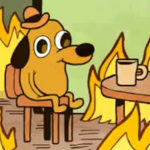
There are a lot of things that need doing, but that many of us just don’t trust the government to do.
Fair enough.
But that still leaves a bunch of stuff that needs doing: health care, identity management, election security, gun regulations, and on and on and on.
These are things that need to be done, but that are problematic when managed by a single centralized bureaucracy (especially one that has other responsibilities and priorities as well) because the underlying data is personal and sensitive and dangerous as all hell to have collated and stored in a single place.
So stop thinking that “government” has to mean a single entity.
Here in the Western states, at least, we actually already have an example of autonomous government entities that we could base this on: utility districts.
(I don’t know about the East, where political science seems to not have learned much new in the last 200 years and recall elections are considered a deviant modernist heresy, but out here in the West utility districts are pretty common.)
A State-owned utility district, run by a board elected by the voters within the district boundaries, is a decent model for a lot of this stuff.
The “elected by the voters” part is pretty important; departments run by appointees are in no sense autonomous units and can’t be trusted to maintain any privacy protections against other departments of the same government.
And apparently they can’t be trusted not to make the re-election a higher priority than their stated mission either.
But a system of autonomous health care districts, each run by an elected board, would be much less likely to have these problems than having the same system run by just another department inside the federal government.
(If we were feeling cheeky, we could call it the National Health Service.)
And right now, we could certainly use a functioning national health care system that we could trust to just do its job without being sidetracked into being a political prop for the president’s re-election efforts.
So we need to stop thinking of “the State” as a single entity.
And instead start thinking of it as “the collection of autonomous entities” in which we all take part by virtue of our citizenship and by which we achieve what we need to maintain a society.
It’s not a catchy slogan, though.


One thought on “Disrupt The State: Monolithic Governments Need To Go Away”